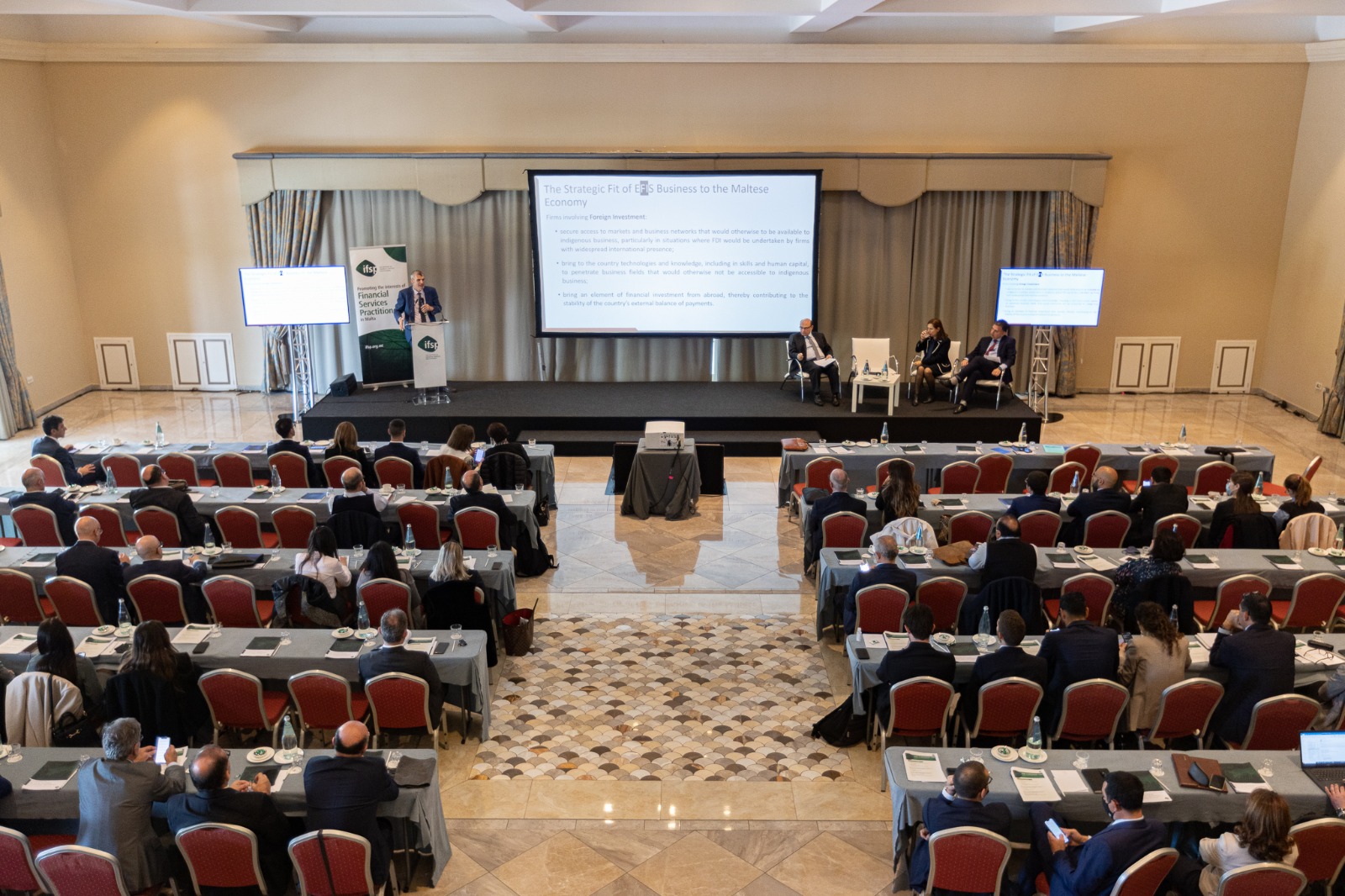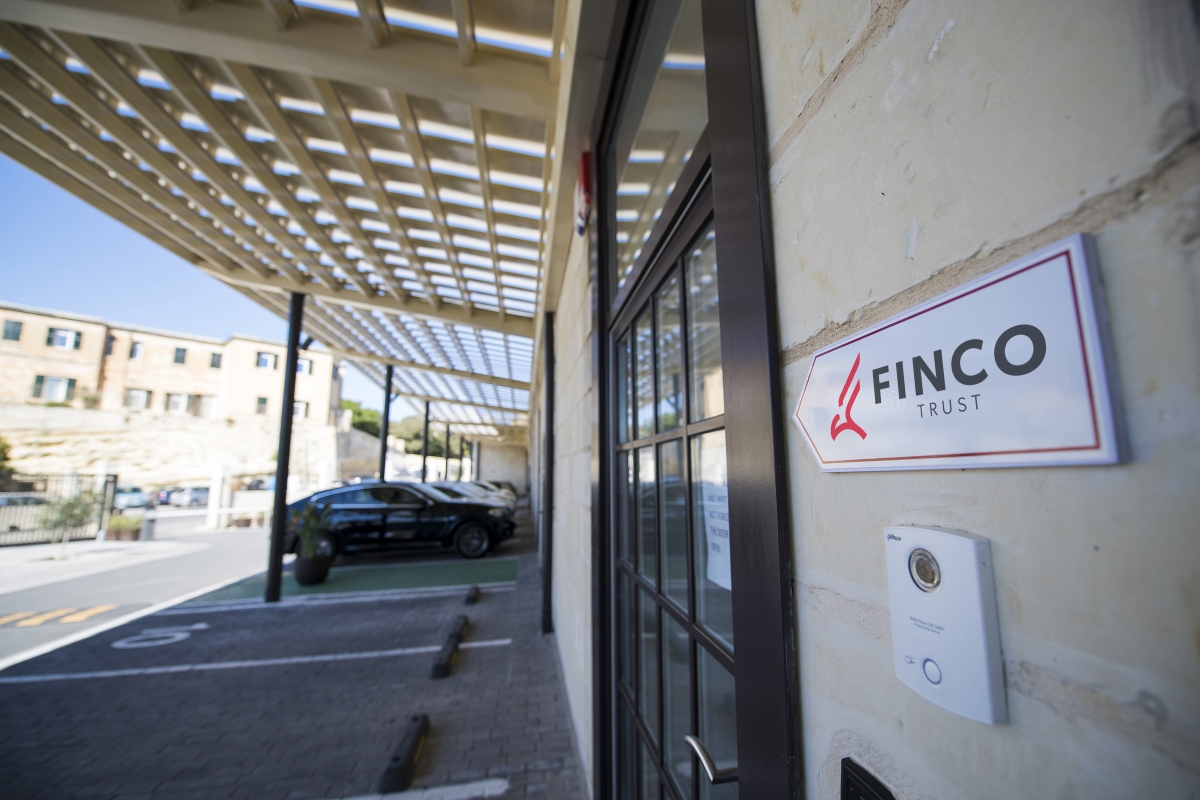The Institute of Financial Services Practitioners (IFSP) hosted its Annual Conference earlier this month, during which specialists highlighted the importance of the sector to Malta’s economy.
At the day-long conference, key figures from the worlds of politics and the financial sector shared industry updates and their views on its way forward with delegates attending both in person at Xara Lodge and online.
The conference kick-started with an online address by European Parliament President Roberta Metsola.
She said that Malta should explore alternative methods of attracting investment beyond a low-tax status, while warning of the long-term impact of economic sanctions resulting from the Russian invasion of Ukraine.
Minister for Finance and Employment Clyde Caruana and Nationalist representative Ivan Bartolo also offered addresses, discussing Malta’s greylisting by the Financial Action Task Force (FATF), inflation as result of the ongoing conflict in Ukraine and the minimum level of taxation.
All speakers also called for unity across the political divide to improve industry standards, not only to ensure the country is removed from the FATF greylist soon, but also to create a sustainable, reputable future for the industry.
“We chose the title of this conference, Revitalising Financial Services – Mapping a Sustainable Path for Malta with intent,” said IFSP President Tonio Zarb in his opening address.
“We need to revitalise the financial services sector, while realising our ambition to grow the sector and build a sustainable international business service centre that does us justice.”
Geraldine Spiteri Lucas from the Malta Business Registry, Joseph Gavin from the Malta Financial Services Authority (MFSA), Conrad Cassar Torregiani from Deloitte, Neville Gatt from PWC and Robert Attard from EY joined panels of other expert speakers to discuss AML/CFT requirements, the challenges of recent tax developments and how to support the industry in the wake of the FATF greylisting.
All agreed that Malta’s ease of doing business should remain a top priority for the sector. Two specialised breakout sessions also allowed participants to share their views on the recently proposed EU tax directives and on the draft corporate governance code issued by the MFSA.
An early presentation by Gordon Cordina from E-Cubed Consultants Ltd shared conclusions from a survey, co-commissioned by the IFSP, that outlined the significant contribution of financial services to the Maltese economy – and will form the basis for the revitalisation of the sector.
Following Dr Cordina’s presentation, a panel discussion featuring David Delicata from the Malta Institute of Accountants, Geraldine Schembri from the Malta Institute of Taxation and Tonio Zarb highlighted noteworthy aspects of the survey’s findings, particularly tax figures, the outstanding contribution of the expat community to the sector, the need to create a competitive employment environment and the sector’s gender gap.
Malta’s inflation edges up to 2.7% in October as food and services lead price pressures
The October RPI reading indicates some re-acceleration in consumer-facing sectors after a period of summer stabilisation
db Group reports turnover of almost €100 million and record profit as it opens bond issue to public investors
This coincides with the launch of a €60 million bond programme to support the Group’s continued expansion
Celebrating success: stories from the team behind Finco Trust
The stories of Lee-Anne Abela, Kris Vella, and Maria Mamo reflect the values that continue to guide the firm forward






